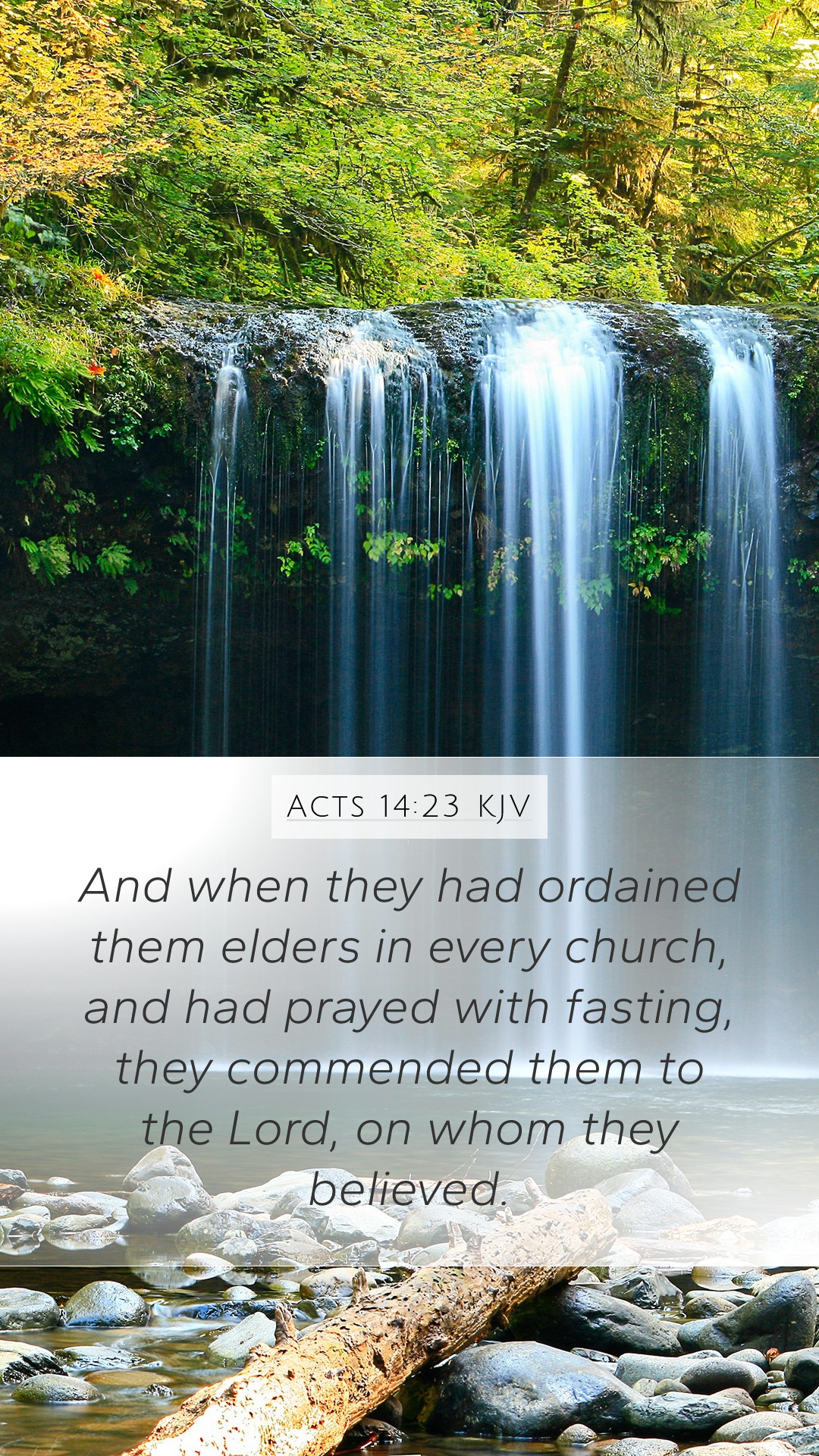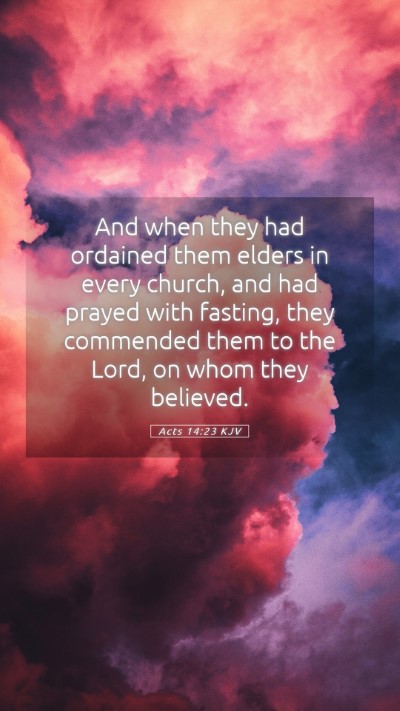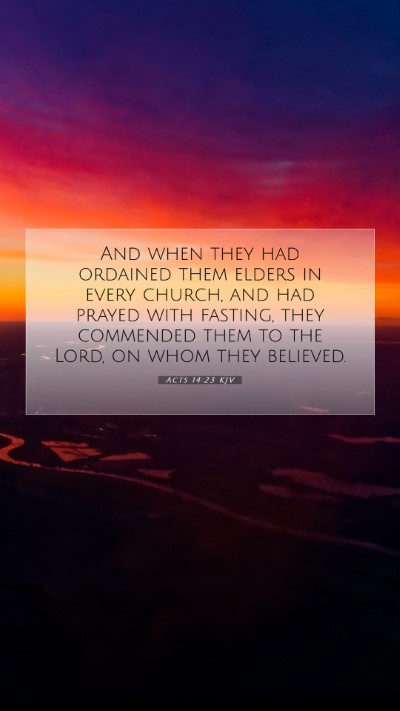Bible Verse Commentary on Acts 14:23
Acts 14:23 states: “When they had ordained them elders in every church, and had prayed with fasting, they commended them to the Lord, on whom they believed.” This verse encapsulates a significant moment in the early church, reflecting on the establishment of leadership within Christian communities and the importance of spiritual guidance.
Meaning of Acts 14:23
This verse serves as a pivotal reminder of the early church’s reliance on prayer and spiritual discipline. As interpreted by various public domain commentators, it highlights key themes such as leadership, the role of prayer in decision-making, and the commitment of the church to godly principles.
Key Themes and Insights
-
Establishment of Leadership:
Matthew Henry emphasizes the importance of ordaining elders to provide spiritual oversight, which is essential for the growth and stability of the church. Elders are seen as shepherds responsible for guiding and protecting the congregation.
-
Prayer and Fasting:
Albert Barnes notes the significance of prayer and fasting in the process of appointing leaders. This illustrates the need for divine guidance when making decisions that affect the community of believers.
-
Commending to the Lord:
Adam Clarke highlights the phrase "commended them to the Lord," indicating a profound trust in God's sovereignty over the new leaders and the communities they will serve. This act signifies an acknowledgment of God’s authority and the belief that He will guide and sustain them.
Application and Reflection
Understanding Acts 14:23 within its historical context sheds light on how early Christians organized themselves and the methods they employed to ensure faithful leadership. In today's context, this verse encourages modern believers to consider:
- How they seek God’s guidance in appointing leaders within their congregations.
- The role of prayer and fasting in their spiritual lives and decision-making processes.
- The necessity of ensuring that church leaders are grounded in faith and committed to the well-being of their communities.
Cross References
Acts 14:23 is closely related to several other passages in Scripture that discuss leadership and church governance. Here are a few notable cross-references:
- Titus 1:5: “For this cause left I thee in Crete, that thou shouldest set in order the things that are wanting, and ordain elders in every city, as I had appointed thee.”
- 1 Timothy 3:1-7: Details the qualifications of church leaders and emphasizes the moral integrity required for elders.
- Acts 6:3: “Wherefore, brethren, look ye out among you seven men of honest report, full of the Holy Ghost and wisdom, whom we may appoint over this business.”
Bible Study Insights
For those engaged in bible study groups or online bible study, Acts 14:23 provides a rich text for discussion and reflection. Key points to consider include:
- Methods of spiritual discernment in leadership selection.
- The interplay between prayer, fasting, and decision-making in church contexts.
- Historical context of ecclesiastical authority in the early church.
Conclusion
Acts 14:23 serves as a powerful reminder of the importance of spiritual leadership, communal prayer, and reliance on God in establishing and guiding the church. By understanding this verse within its broader biblical narrative, believers are encouraged to seek God’s wisdom and direction in their personal lives and within their church communities.
Further Study and Reflection
For deeper bible study insights, consider exploring the following resources:
- Commentaries on Acts for historical context.
- Studies on the role of prayer in the early church.
- Resources focused on church leadership and governance.


